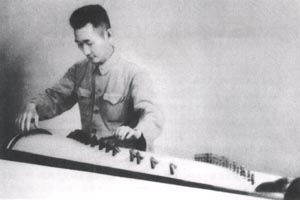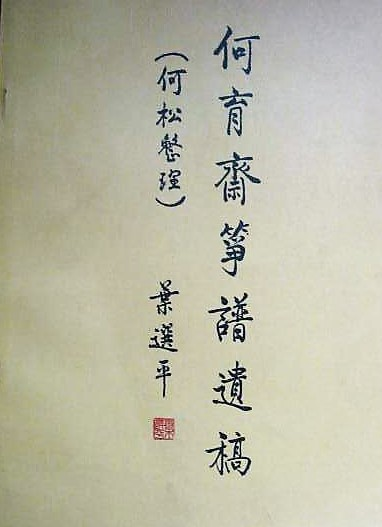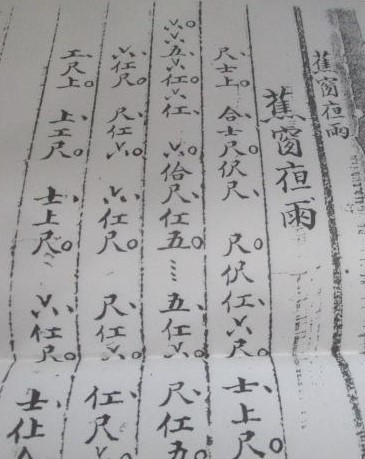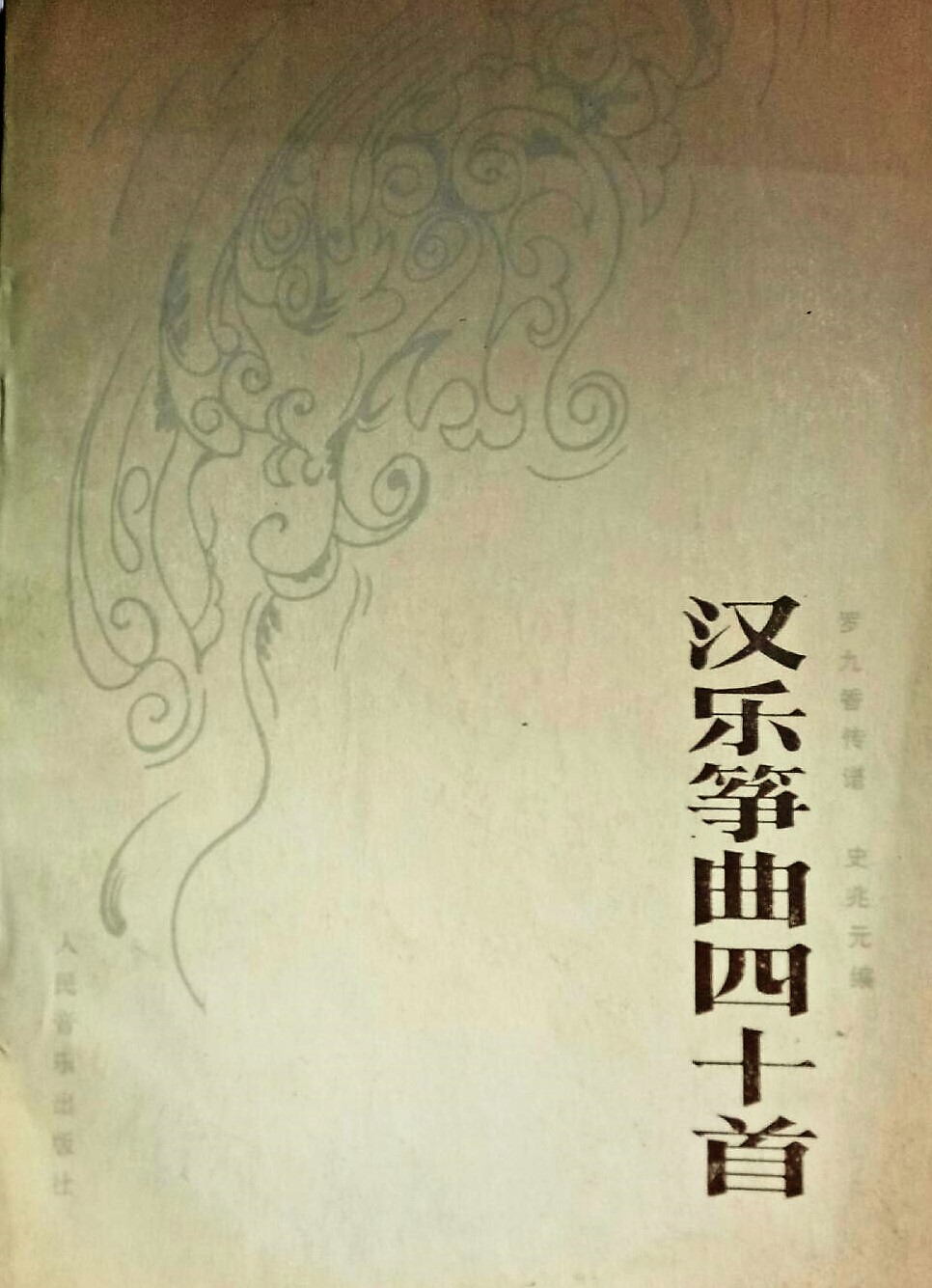Hakka Zheng·Luo Jiuxiang and "Water Lotus"
From the perspective of historical origin, the Hakka are not the indigenous inhabitants of Northeast Guangdong. Since the Western Jin Dynasty (AD 265-316), the Han nationality in the Central Plains follows the custom of "first come first, then guests", and later generations will be immigrated from the Central Plains. People call it "Hakka" (Feng Guangyu, "The Light of Hakka Zheng Music - Commemorating the Centenary of the Birth of Mr. Luo Jiuxiang, the Master of Lingnan Hakka Zheng", published in "Musical Instruments", No. 2, 2003). Perhaps it stems from the natural and long-standing blood lineage. As an immigrant group of the ancient Central Plains Han population who moved southward on a large scale, the ancient music of the Central Plains that still exists vaguely in "Zhongzhou Ancient Tiao" and "Han Gao Old Music" and its coexistence The Lingnan atmosphere of the Hakka people always evokes a certain inner hearing and life perception across time, space and region.

Luo Jiuxiang (1902-1978)
In the 1920s and 1930s, Mr. He Yuzhai (1886-1949) from Dapu County, Guangdong Province collected and arranged 60 pieces of "Zhongzhou Ancient Melody" and "Hangao Old Score" from the Hakka and Han music silk strings. In the performance, inheritance and professional teaching of Luo Jiuxiang, a famous Hakka zheng school, these melodies and tunes inherited from teachers were further interpreted and transformed into the classic representative pieces of the Hakka zheng school that are well-known all over the country in the middle of the 20th century.

"He Yuzhai's Remaining Manuscript of Zheng Geng" China Drama Publishing House, August 2002.

The Hakka zheng piece "Night Rain at the Banana Window" (Gong-chi score) can be found in "He Yuzhai's zheng score"
Like other traditional zheng schools in Henan, Shandong, Chaozhou, etc., the early Guangdong folk "chord rope" and other silk and bamboo playing and singing activities were very prosperous and became a place for folk musicians to show their talents. Hakka zheng performances centered on the Dapu area are often It exists and is active in the accompaniment of local Chinese opera (formerly known as "Waijiang Opera") and Chinese music ensembles, echoing the melody and timbre of silk and bamboo instruments such as Yehu, Pipa, Sanxian, Yangqin, Di and Xiao. In 1954, Luo Jiuxiang was recommended by Ouyang Yuqian, a famous dramatist and then president of the Central Academy of Drama, to enter the "Minsheng Han Opera Troupe" in Dapu County (later merged with the "Meiguang Han Opera Troupe" in Meixian County to become the "Guangdong Han Opera Troupe") , has successfully transformed from the folk self-entertainment playing to a full-time zheng and sanxian player in the orchestra.
In 1956, Luo Jiuxiang, Rao Congju and Rao Shushu, as representatives of Hakka music, went to Beijing with the Guangdong delegation to participate in the first National Music Week. Huge Professional Music Show” (see: Chen Qian, “Investigation and Research of the First National Music Week in 1956”, Master Thesis of China National Academy of Arts, 2009). At this time, when the Central Conservatory of Music was taking the lead in preparing for the establishment of the Guzheng major, with the gathering of Henan Zheng, Shandong Zheng, Chaozhou Zheng, Hakka Zheng, and traditional zheng music from the four regions of the North and South, it quickly became the first National Music Week, It was even one of the focal points of discussion in the entire music industry at the time. Since then, professional music academies in various places have gradually established, and they have successively opened guzheng majors. In 1959, Luo Jiuxiang was hired as a full-time guzheng teacher by the Department of Folk Music of the Tianjin Conservatory of Music. After 1960, he was transferred back to Guangdong and continued to serve in Guangzhou Music College (now Xinghai Conservatory of Music). Since entering the professional music school to teach, Luo Jiuxiang's Hakka zheng music has been arranged and notated by He Baoquan, Shi Zhaoyuan, Chen Anhua, Rao Ningxin and others. Among them, "Forty Songs of Chinese Music Zheng" compiled by Shi Zhaoyuan based on Luo Jiuxiang's biography is an earlier and more comprehensive collection of special zheng music that shows Luo Jiuxiang's Hakka zheng music.

The Biography of Luo Jiuxiang and Shi Zhaoyuan's "Forty Songs of Chinese Music"
People's Music Publishing House, June 1985.
"Water Lotus"
Involving the artist
Involving musical instruments
Guess you like
Hot news
- 01 The Simple Difference Between Guqin, Se, and Guzheng
- 02 The difference between the five-stringed lute and the four-stringed lute
- 03 The difference between cymbals and cymbals in ethnic musical instruments
- 04 Dulcimer exam and performance repertoire
- 05 The handsome guy in 1997 is so advanced in pulling erhu! Netizen: Come and "wash your ears"
 渝公网安备 50010702504639号
渝公网安备 50010702504639号